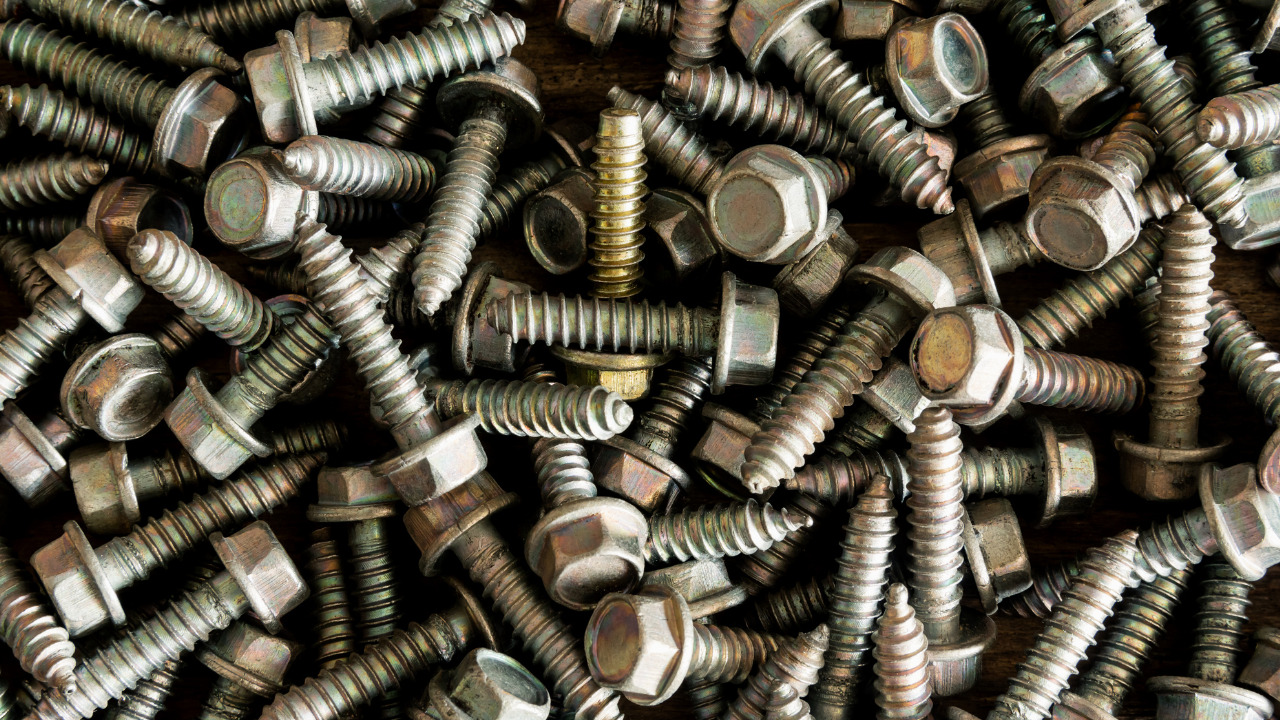A screw is a tool that can be employed in almost any situation. Its use is not restricted to any particular industry. In fact, screws can be found in almost any environment. When it comes to choosing the right one, there are a few factors that should be taken into account. Following is the criteria for choosing a screw:
- Physical structure of the fastener
- Material used to manufacture the fastener
- The chemical coating applied on the top
- Diameter of fastener
- Length of fastener
- Head type
- Thread type
Table of Contents
What materials are used for making screws?
They are made from a variety of materials. The material used for the screw is largely dependent on the application. The most common materials used by screw manufacturers include:
Steel
While steel’s low price makes it a popular material, the screws made of steel are heavier and are not suitable for applications where weight reduction is a key consideration.
Copper
Thanks to the copper’s ability to bend and break, copper screws are popular in places with higher corrosion risk. Plus, copper is lighter than most other metals.
Aluminium
Aluminium screws are not suitable for high pressure applications, however aluminium screws are one of the lightest ones available in the market.
Titanium
Due to its high strength-to-weight ratio, titanium is one of the most expensive materials in the world. Because of this, it is primarily used in applications where performance and design are more important than cost.
Chemical coating
Most of the screws are coated with some kind of chemical to make them last longer, resist corrosion, and look better. Popular coatings include ceramic, zinc, and copper, which provide fasteners extra durability and resistance to corrosion.
Types of screw heads
There are many different types of screw heads available today. Some are proprietary, while others have been around for a long time and continue to be the go-to option for most applications. Some of the most common types of screw heads are Slotted screw heads, Phillips screw heads, square screw heads and star screw heads.
Types of screws Thread
Screws come in a wide range of thread types. The type of screw thread you choose depends on if your operation will be speed-oriented or safety-oriented. Coarse threads are good for fast-assembling, but they don’t offer the same level of thread overlap as fine threads. In addition to the above-mentioned qualities, choosing the correct fastener grade is also important. Fasteners are graded as follows:
Tensile strength
Tensile strength is the amount of stress a material can take before it starts to break or crack.
Yield strength
Yield strength is the point at which the specific deformation of the fastener begins to be affected by the load.
Poof load
Poof Load is the axial load your material can withstand without any sign of a permanent set.
Grade markings
Grade markings are divided into two main categories: Imperial and metric. Imperial fasteners are measured in imperial units (in). Metric fasteners are measured using metric units (cm).
How to find the right vendor?
There are various types of screws available in various specifications. Some of the most common types of screws are delf-drilling screws, wood screws, roofing screws, etc.
If you want to know more about different types of fasteners and nuts and bolts, you should visit GSS Fastners, UK. They are one of the leading industrial manufacturers, suppliers and exporters of almost all types of fasteners across the nation. They offer a wide variety of products in both regular and metric formats and specifications.





